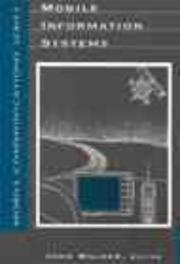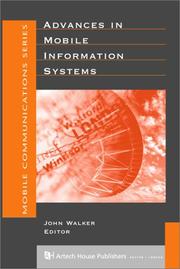| Listing 1 - 10 of 420 | << page >> |
Sort by
|

ISBN: 0792312341 9401054223 9401132267 9780792312345 Year: 1991 Volume: 121 Publisher: Dordrecht: Kluwer,
Abstract | Keywords | Export | Availability | Bookmark
 Loading...
Loading...Choose an application
- Reference Manager
- EndNote
- RefWorks (Direct export to RefWorks)
Religious studies --- Hegel, Georg W.F. --- Religion --- Philosophy --- History --- Congresses --- Philosophie --- Histoire --- Congrès --- Hegel, Georg Wilhelm Friedrich, --- -Religion, Primitive --- Atheism --- God --- Irreligion --- Religions --- Theology --- -History --- -Congresses --- Hegel, Georg Wilhelm Friedrich --- -Religion --- -Philosophy --- -Hegel, Giorgio Guglielmo Frederico --- Congrès --- Religion, Primitive --- Hegel, Giorgio Guglielmo Frederico --- Congresses. --- 19th century --- Hegel, Georg Wilhelm Friedrich, 1770-1831 - Religion - Congresses. --- Religion - Philosophy - History - 19th century - Congresses. --- Hēgeru, --- Hei-ko-erh, --- Gegelʹ, Georg, --- Hījil, --- Khegel, --- Hegel, G. W. F. --- Hegel, --- Hei Ge Er, --- Chenkel, --- Hīghil, --- הגל, --- הגל, גאורג וילהלם פרידריך, --- הגל, גיאורג וילהלם פרידריך, --- הגל, ג.ו.פ, --- היגל, גורג ווילהלם פרדריך, --- היגל, גיורג וילהלם פרידריך, --- 黑格尔, --- Hegel, Guillermo Federico, --- Hegel, Jorge Guillermo Federico, --- Heyel, Georg Wilhelm Friedrich, --- Higil, Gʼūrg Vīlhim Frīdrīsh, --- هگل, --- هگل، گئورگ ويلهم فريدريش,

ISBN: 0890063400 Year: 1990 Publisher: Boston London Artech House
Abstract | Keywords | Export | Availability | Bookmark
 Loading...
Loading...Choose an application
- Reference Manager
- EndNote
- RefWorks (Direct export to RefWorks)
Telecommunication services --- I/T --- ICT --- IT --- Informatietechnologie --- Information [Technologie de l'] --- Information technology --- Mobiele communicatiesystemen --- Mobile communication systems --- Systèmes de communication mobiles --- Technologie de l'information --- informatie- en communicatietechnologie --- #SBIB:309H1713 --- 681.3*H4 --- Vehicles --- Vehicular communication systems --- Radio --- Wireless communication systems --- IT (Information technology) --- Technology --- Telematics --- Information superhighway --- Knowledge management --- Mediatechnologie: nieuwe toepassingen (abonnee-televisie, electronic mail, desk top publishing, virtuele realiteit...) --- Information systems applications (GIS etc.) --- Communication systems --- 681.3*H4 Information systems applications (GIS etc.) --- Mobile communication systems. --- Information technology.
Book
ISBN: 3631468415 9783631468418 Year: 1995 Volume: 2 Publisher: Frankfurt a. M.: Lang,
Abstract | Keywords | Export | Availability | Bookmark
 Loading...
Loading...Choose an application
- Reference Manager
- EndNote
- RefWorks (Direct export to RefWorks)
Hegel, Georg Wilhelm Friedrich, --- Hegel, Georg Wilhelm Friedrich --- Hegel, Giorgio Guglielmo Frederico --- Hegel, Georg Wilhelm Friedrich. --- Hēgeru, --- Hei-ko-erh, --- Gegelʹ, Georg, --- Hījil, --- Khegel, --- Hegel, G. W. F. --- Hegel, --- Hei Ge Er, --- Chenkel, --- Hīghil, --- הגל, --- הגל, גאורג וילהלם פרידריך, --- הגל, גיאורג וילהלם פרידריך, --- הגל, ג.ו.פ, --- היגל, גורג ווילהלם פרדריך, --- היגל, גיורג וילהלם פרידריך, --- 黑格尔, --- Hegel, Guillermo Federico, --- Hegel, Jorge Guillermo Federico, --- Heyel, Georg Wilhelm Friedrich, --- Higil, Gʼūrg Vīlhim Frīdrīsh, --- هگل, --- هگل، گئورگ ويلهم فريدريش, --- Hegel, Georg Wilhelm Friedrich, - 1770-1831
Book
ISBN: 1849509964 9786612888731 1849509972 1282888730 9781849509978 9781849509961 Year: 2010 Publisher: Bingley, U.K. : Emerald Group Publishing Limited,
Abstract | Keywords | Export | Availability | Bookmark
 Loading...
Loading...Choose an application
- Reference Manager
- EndNote
- RefWorks (Direct export to RefWorks)
Service, Satisfaction and Climate: Perspectives on Management in English Language Teaching presents the results of research carried out in New Zealand to demonstrate the ways ELT can be conceptualized in terms of service and climate. Although ESL is a major worldwide service industry employing large numbers of professionals and serving millions of clients, it is an under-researched field and one that is under-represented in the management/business literature. This omission is particularly noticeable, given that ELT has its own particular themes, problems, and issues. For instance, ELT is an educational service, yet exists within a commercial context. Its clients are from different cultural and linguistic backgrounds. In many ELT contexts, the cultural and linguistic backgrounds of the service providers are different from those of the clients. Thus, the service provision has a strong cross-cultural dimension. Yet the ELT sector is largely missing from the educational and the management literature. This book seeks to fill the gap through discussion of ELT as a service, issues surrounding ELT teachers as service providers, the work of ELT managers, client expectations and perceptions of ELT service, comparison of staff estimates and client ratings of service quality, and considerations of service milieu and climate in ELT centers.
English language -- Study and teaching -- Management. --- English language -- Study and teaching. --- Language and education. --- English --- English Language --- Languages & Literatures --- English language --- Language and languages --- Study and teaching --- Foreign speakers. --- Study and teaching. --- EFL (Language study) --- English as a foreign language --- English as a second language --- English to speakers of other languages --- ESL (Language study) --- ESOL (Language study) --- Teaching English as a second language --- TEFL (Language study) --- TESL (Language study) --- Foreign language study --- Foreign students --- Language and education --- Language schools --- Language and languages Study and teaching --- Germanic languages
Book
ISBN: 0810907526 9780810907522 Year: 1979 Publisher: Paris: Editions Cercle d'art,
Abstract | Keywords | Export | Availability | Bookmark
 Loading...
Loading...Choose an application
- Reference Manager
- EndNote
- RefWorks (Direct export to RefWorks)
Constable, John --- Constable, John, --- Constable, John, - 1776-1837. --- Constable, John.

ISBN: 1580532136 9781580532136 0890069514 9780890069516 Year: 1999 Publisher: [Place of publication not identified] Artech House
Abstract | Keywords | Export | Availability | Bookmark
 Loading...
Loading...Choose an application
- Reference Manager
- EndNote
- RefWorks (Direct export to RefWorks)
Book
ISBN: 1523115378 1785612069 Year: 2018 Publisher: Herts, England : The Institution of Engineering and Technology,
Abstract | Keywords | Export | Availability | Bookmark
 Loading...
Loading...Choose an application
- Reference Manager
- EndNote
- RefWorks (Direct export to RefWorks)
Congestion pricing. --- Roads --- Transportation and state. --- State and transportation --- Transportation --- Transportation policy --- Highway finance --- Congestion charging --- Congestion fees --- User charges --- Finance. --- Government policy
Book
ISBN: 1800102496 Year: 2022 Publisher: Boydell & Brewer
Abstract | Keywords | Export | Availability | Bookmark
 Loading...
Loading...Choose an application
- Reference Manager
- EndNote
- RefWorks (Direct export to RefWorks)
Shows that the work of Wilhelm von Humboldt (1767-1835) forms a philosophy of dialogue and communication that is crucially relevant to contemporary debates in the Humanities.Wilhelm von Humboldt (1767-1835) is the progenitor of modern linguistics and the originator of the modern teaching and research university. However, his work has received remarkably little attention in the English-speaking world. Humboldt conceives language as the source of cognition as well as communication, both rooted in the possibility of human dialogue. In the same way, his idea of the university posits the free encounter between radically different personalities as the source of education for freedom. For Humboldt, both linguistic and intellectual communication are predicated firstly on dialogue between persons, which is the prerequisite for all intercultural understanding.Linking Humboldt's concept of dialogue to his idea of translation between languages, persons, and cultures, this book shows how Humboldt's thought is of great contemporary relevance. Humboldt shows a way beyond the false alternatives of "culturalism" (the demand that a plurality of cultural and faith-based traditions be recognized as sources of ethical and political legitimacy in the modern world) and "universalism" (the assertion of the primacy of a universal culture of human rights and the renewal of the European Enlightenment project). John Walker explains how Humboldt's work emerges from the intellectual conflicts of his time and yet directly addresses the concerns of our own post-secular and multicultural age.
Linguistics --- International Relations --- German Literature --- Language Arts & Disciplines --- Political Science --- Literary Criticism --- International relations --- German literature --- Language arts & disciplines --- Political science --- Literary criticism
Book
ISBN: 9781571139757 1571139753 9781800102484 1800102496 Year: 2022 Publisher: Boydell & Brewer
Abstract | Keywords | Export | Availability | Bookmark
 Loading...
Loading...Choose an application
- Reference Manager
- EndNote
- RefWorks (Direct export to RefWorks)
Shows that the work of Wilhelm von Humboldt (1767-1835) forms a philosophy of dialogue and communication that is crucially relevant to contemporary debates in the Humanities.Wilhelm von Humboldt (1767-1835) is the progenitor of modern linguistics and the originator of the modern teaching and research university. However, his work has received remarkably little attention in the English-speaking world. Humboldt conceives language as the source of cognition as well as communication, both rooted in the possibility of human dialogue. In the same way, his idea of the university posits the free encounter between radically different personalities as the source of education for freedom. For Humboldt, both linguistic and intellectual communication are predicated firstly on dialogue between persons, which is the prerequisite for all intercultural understanding.Linking Humboldt's concept of dialogue to his idea of translation between languages, persons, and cultures, this book shows how Humboldt's thought is of great contemporary relevance. Humboldt shows a way beyond the false alternatives of "culturalism" (the demand that a plurality of cultural and faith-based traditions be recognized as sources of ethical and political legitimacy in the modern world) and "universalism" (the assertion of the primacy of a universal culture of human rights and the renewal of the European Enlightenment project). John Walker explains how Humboldt's work emerges from the intellectual conflicts of his time and yet directly addresses the concerns of our own post-secular and multicultural age.
Intercultural communication. --- Language and languages --- Philosophy. --- Humboldt, Wilhelm von, --- Linguistics --- International relations --- German literature --- Language arts & disciplines --- Political science --- Literary criticism
Book
Year: 1950 Publisher: Washington: Nationales,
Abstract | Keywords | Export | Availability | Bookmark
 Loading...
Loading...Choose an application
- Reference Manager
- EndNote
- RefWorks (Direct export to RefWorks)
| Listing 1 - 10 of 420 | << page >> |
Sort by
|

 Search
Search Feedback
Feedback About UniCat
About UniCat  Help
Help News
News